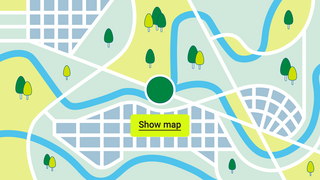Copyright: iStock/Utopia_88
Reducing marine litter: What are the actual challenges in Thailand?
Thailand is particularly rich in marine biodiversity. Its coastal and marine regions host mangrove forests, sea grass and coral reef ecosystems including hard corals, 2000 species of marine molluscs, 11,900 species of marine invertebrates, and more than 2,000 marine fish species, accounting for ten percent of fish species worldwide, as well as 20 species of cetaceans. To safeguard its rich coastal and marine biodiversity, Thailand has 28 Marine Protected Areas (MPAs).
At the same time, Thailand ranks among the world’s top 10 countries for plastic leakage into the sea. Thailand has experienced increasing levels of waste generation linked to a rapid economic growth, urbanisation, rising tourism numbers and changing consumption and production patterns. Currently, around 22 percent of Thailand’s solid waste remain not collected or recycled, which contributes to plastic leakage into water systems and the sea. Plastic pollution threatens marine biodiversity, but also affects Thailand’s fisheries and aquaculture as well as its tourism industry, which is a main economic driver of the country.
Thailand’s waste management challenges concern financing solid waste management, human and organisational capacities amongst local administrations, especially on smaller islands. Furthermore, policy approaches such as Extended Producer Responsibility and packaging design for reuse and recycling are still new for business stakeholders along the packaging value chain.

What contribution does the project make to reducing marine litter?
MA-RE-DESIGN addresses both plastic waste management and sustainable packaging design in Thailand. At local level, MA-RE-DESIGN works together with two municipalities near biodiversity hotspots to increase separate plastic waste collection, sorting and recycling. Also, local circular economy plans will be developed, which will then serve as replicable examples for other parts of Thailand. To design sustainable alternatives for single-use plastic packaging and products that are reusable, recyclable or biodegradable/compostable, the project engages with a broad stakeholder network across the plastic value chain. As the tourism industry plays an important role in preventing marine litter, MA-RE-DESIGN develops measures to avoid single-use plastic packaging and products in this sector, such as cups, plates, cutlery, straws, food containers, soap containers and bottles. At national level, the project supports strategy development to enhance packaging waste management through, for example, an Extended Producer Responsibility (EPR) system. Since marine litter prevention requires a concerted approach within Southeast Asia as a whole, the project also fosters regional knowledge exchange and capacity building. MA-RE-DESIGN involves a wide range of stakeholders, including different actors from the plastic packaging value chain, tourism, public decision-makers, consumers and citizens, national park authorities, community waste collection groups and informal waste workers.
